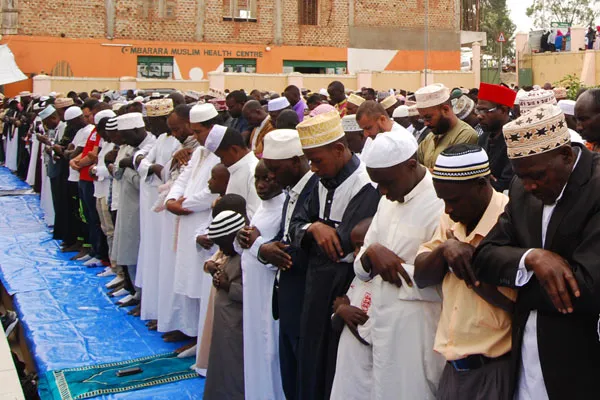The Ramadan season, set to begin on March 10th or 11, 2024, is a period of deep reflection on the Holy Qu’ran and one of the four pillars of Islam.
Adhallah Ssemanga, a devote Muslim, said that Ramadan is the last of the four pillars ordained in the Holy Qur’an and that it’s not a punishment but rather a time to reflect on God.
“Fasting during the holy month of Ramadan is the fourth pillar of Islam. Ordained in the Holy Qur’an, the fast is an act of deep personal worship in which Muslims seek a richer perception of God. Fasting is also an exercise in self-control whereby one’s sensitivity is heightened to the sufferings of the poor,” Semanda said.
Ssemanda said that those who are sick are exempt from fasting: pregnant women, the elderly, and anyone who is not well, including children under the age of 15.
Muslims observe fasts and prayers in Ramadan for 30 days, abstaining from food, drink, and sexual relations before the first light of dawn until the setting of the sun.
Muslims are, however, recommended to wed before the Ramadan season begins, as an unwed woman is not permitted to cook meals for a Muslim man if she is not legally married during this period.
The Iganga District Khadi, Sheikh Sinani Muwanika, while speaking to journalists, complained about how many Muslims always wait for the month to wed.
“As we prepare to start fasting, I caution Muslims against waiting for this holy month to wed. Wedding is a must in Islam, but some believers attach it to the Ramadan period,” Muwanika noted.
Sheikh Muwanika urged the devoted Muslim men to rather pay unwed women for the food they cook during the month of Ramadan.
“According to Islamic teachings, an unwed woman is not supposed to prepare food for a Muslim man she is not legally married to during the month of Ramadan. Devoted Muslims with unwed women are always advised to either hire or pay this woman for the food she cooks during the holy month of Ramadan,” Sheikh Muwanika noted.
However, Sheikh Sinani Muwanika said that Muslims should not wait for such conditions to happen but instead wed their partners before starting the holy month.
The Ramadan period typically commences around March 10th or 11th each year due to the Islamic lunar calendar. It follows the phases of the moon, causing Ramadan to shift approximately 10 days earlier each year in the Gregorian calendar.
According to Catherine Boeckmann of the Almanack, this movement results in Ramadan starting around the same time each year, often beginning on March 10th or 11th.
The exact start date can vary slightly based on moon sightings and differing interpretive schools among Muslim communities.
During this period, Muslims in Uganda observe traditional practices, including early morning prayers, fasting from dawn to sunset, and attending Taraweeh prayers (a voluntary prayer that is performed during the month of Ramadan) at mosques.
The spirit of Ramadan is deep throughout the country, with mosques busy during iftar celebrations (a meal eaten after sunset during Ramadan).















